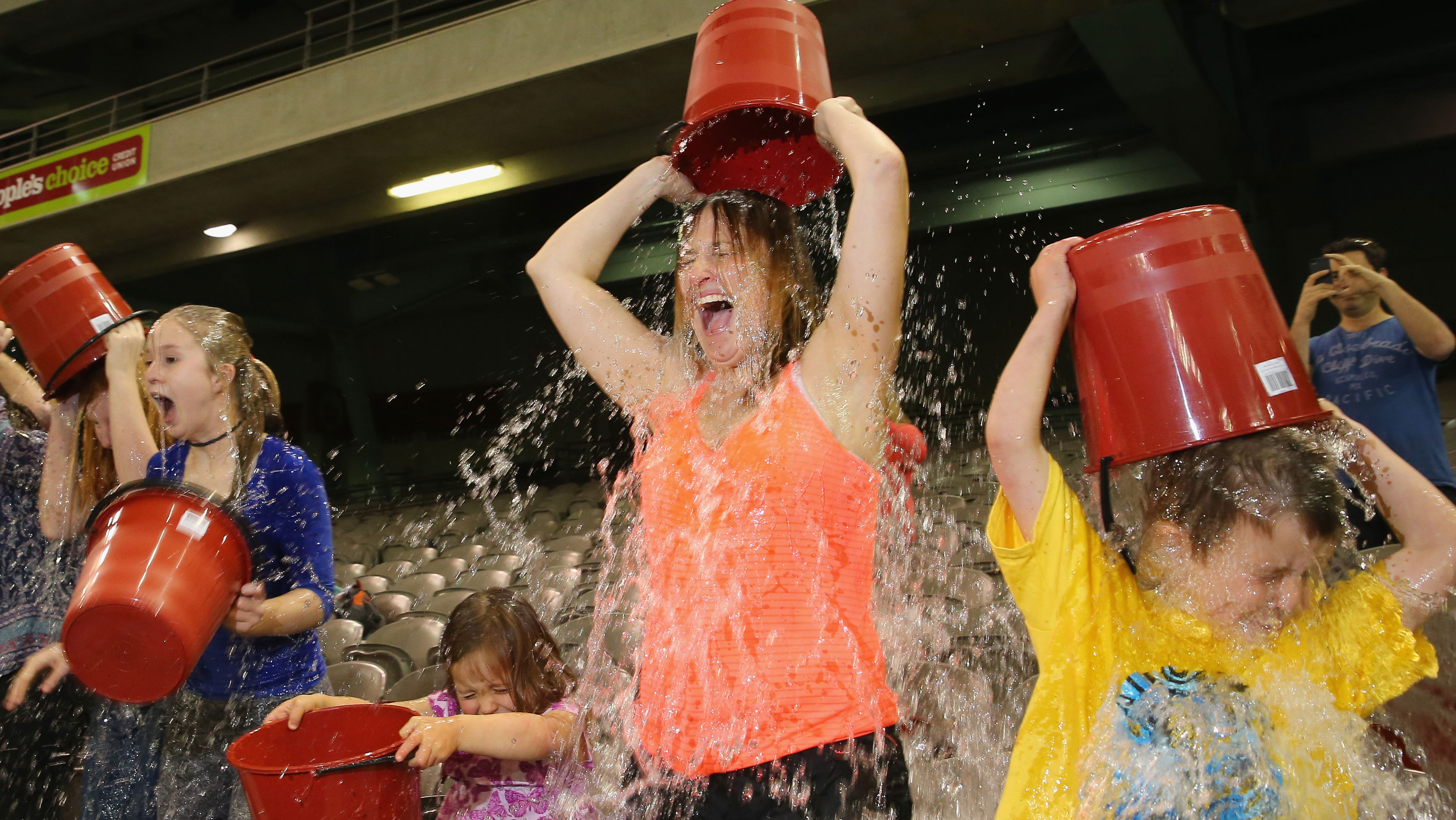Are we becoming more narcissistic and does it matter?
Critics have lined up to lambast selfies and ice bucket challenges, but not everyone thinks they're all bad

A free daily email with the biggest news stories of the day – and the best features from TheWeek.com
You are now subscribed
Your newsletter sign-up was successful
In 2013, 'selfie' was named the word of the year by the Oxford Dictionary, and 2014 looks as though is it fast turning into the year of the ice bucket challenge. Together, the trends have raised concern that society as a whole is becoming increasingly narcissistic.
"We live in a culture suffused by low-grade narcissism," says Katy Waldman in Slate Magazine. "Our Instagram accounts, Facebook pages, Twitter feeds, and personal websites refract our lives into a coloured light show for all to watch."
W. Keith Campbell, author of The Narcissism Epidemic, says that narcissism comes in two forms - grandiose narcissism and vulnerable narcissism - and that both are on the increase.
The Week
Escape your echo chamber. Get the facts behind the news, plus analysis from multiple perspectives.

Sign up for The Week's Free Newsletters
From our morning news briefing to a weekly Good News Newsletter, get the best of The Week delivered directly to your inbox.
From our morning news briefing to a weekly Good News Newsletter, get the best of The Week delivered directly to your inbox.
Grandiose narcissism is, as the name suggests, associated with extroverts and tends to be rooted in inflated self-image, Campbell writes in The Independent. Vulnerable narcissists, on the other hand, tend to have low self-esteem but nonetheless "believe they are entitled to special treatment and greatness".
Some believe there is a generational dimension to the problem. Waldman cites a study from the National Institutes of Health which determined that 9.4 per cent of 20 to 29-year-olds exhibit extreme narcissism, compared with 3.2 per cent of those older than 65.
According to professor Brad Bushman, the co-author of the study, the trend is not only a problem for those who suffer from the personality disorder, but for everyone.
"Overall, narcissism is problematic for both individuals and society," he writes for Medical News Today. "Those who think they are already great don't try to improve themselves. And narcissism is bad for society because people who are only thinking of themselves and their own interests are less helpful to others."
A free daily email with the biggest news stories of the day – and the best features from TheWeek.com
The Daily Mail's controversial columnist Jan Moir is less concerned. She agrees that the ice bucket challenge trend is "a little narcissistic and silly", but asks: "Does it matter? No. Not a bit. It is estimated that more than 5,000 people in the UK have this terrible disease, for which there is no cure. So every penny helps to fund research and raise awareness."
So how can you tell if you are a narcissist? There is an established 40-question diagnostic test for the disorder, but a new study suggests that the test can be skipped in favour of simply asking yourself a single question: "Am I a narcissist?"
According to the Washington Post, the study showed that individuals who scored highly on the 40-question test were very likely to respond in the affirmative to that single question.
-
 The Olympic timekeepers keeping the Games on track
The Olympic timekeepers keeping the Games on trackUnder the Radar Swiss watchmaking giant Omega has been at the finish line of every Olympic Games for nearly 100 years
-
 Will increasing tensions with Iran boil over into war?
Will increasing tensions with Iran boil over into war?Today’s Big Question President Donald Trump has recently been threatening the country
-
 Corruption: The spy sheikh and the president
Corruption: The spy sheikh and the presidentFeature Trump is at the center of another scandal